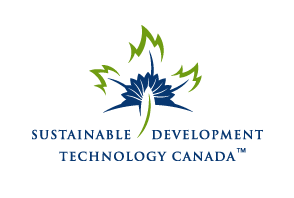Clean Technologies Funding Approved by Sustainable Development Technology Canada (SDTC)
 Ottawa, Canada (SDTC) – With This New Funding Round, SDTC’s Cumulative Support For Ethanol and Other Biofuel Technologies Grows to Almost $60 Million.
Ottawa, Canada (SDTC) – With This New Funding Round, SDTC’s Cumulative Support For Ethanol and Other Biofuel Technologies Grows to Almost $60 Million.Sustainable Development Technology Canada (SDTC) has approved $48 million in new funding for the development and demonstration of clean technologies that benefit the environment and economy.
The money will be allocated to 22 projects, and includes $7.3 million for four biofuel technology projects ranging from the production of ethanol from cellulose to biodiesel production from mustard seed. The new funding, approved in principle by SDTC’s Board of Directors, brings SDTC’s total commitment to biofuel technology initiatives to $59 million. Funding for each project is subject to final contract execution.
For the first time, SDTC has approved funding for soil and water-related projects, with
$4 million allocated to five initiatives in this area. SDTC announced its initial call for applications for soil and water projects last year. The funds will go toward the development of monitoring and detection equipment that can help avoid water main breaks, improved agricultural practices and other technologies.
“By supporting clean technologies during the pre-commercialization stage, SDTC helps get them to market faster and more successfully,” said SDTC Chairman James M. Stanford. “Not only will these technologies increase the efficiency and competitiveness of Canadian industries, but they will also reduce environmental impacts.”
The 22 newly-approved projects target a wide variety of sectors that are core to Canada’s economy including; energy exploration and production; power generation; energy utilization; transportation; agriculture; forestry and wood products; and waste management.
The private and public sector consortia partners behind the projects are investing an additional $111 million, representing a more than 2:1 ratio of industry-partner contribution to SDTC investment.
SDTC continues to be on track to allocate all of its funds up to December 2010.
“The Government of Canada is developing a plan focused on ensuring future generations enjoy clean air, clean water, clean land, and clean energy,” said the Honourable Gary Lunn, Minister of Natural Resources. “As of July 1st, small and medium size companies will benefit from the reduced GST, lower business tax rates and increased tax allowances all of which will improve the economy’s ability to invest in the research and development of new technologies. These clean technology investments and lower taxes in the recent budget show that Canada’s new government is delivering on its commitments to a clean and healthy environment.”
“The Government of Canada is committed to the goals of a stronger economy and healthier environment,” said the Honourable Rona Ambrose, Minister of the Environment. “Innovative clean technologies such as those supported by SDTC can help us achieve both of these goals at the same time.”
“The quality of the proposals SDTC receives and strength of the consortia behind them continue to improve, making us optimistic that Canada’s clean technology infrastructure is gaining momentum,” said Vicky J. Sharpe, President and CEO of SDTC. “That optimism extends to the positive environmental impacts and associated health benefits of SDTC funded projects. These projects often integrate clean air, climate change, clean water and clean soil benefits, providing holistic, real-world solutions for industry.
“The large contribution of small and medium sized enterprises (SMEs) to innovation in Canada is reflected in the fact that 89 per cent of SDTC’s funded projects are led by SMEs, a trend that has continued in this funding round,” Sharpe added.
Since April 2002, SDTC has completed eight funding rounds, committed $217 million to 97 clean technology projects, and leveraged $559 million from project consortia members, for a total portfolio value of $776 million.
SDTC will launch its next call for Statements of Interest (SOIs) on August 23, 2006. The upcoming call for SOIs will include a request for projects with technologies that address climate change, clean air, clean water and clean soil issues.
About SDTC
Sustainable Development Technology Canada is a foundation created by the Government of Canada that operates a $550 million fund to support the development and demonstration of clean technologies — solutions that address issues of climate change, clean air, clean water, and clean soil to deliver environmental, economic and health benefits to Canadians.
An arm’s length, not-for-profit corporation, SDTC fills the void in the innovation chain between research and commercialization — helping clean technology developers move through the development and demonstration phases, in preparation for commercialization. SDTC applies a stringent due diligence process when selecting technologies and requires every applicant to involve a consortium of partners in their project.
SDTC encourages collaboration among private, financial, academic, and public sector partners, and with the Canadian government to build a sustainable development infrastructure in Canada.
You can return to the main Market News page, or press the Back button on your browser.

